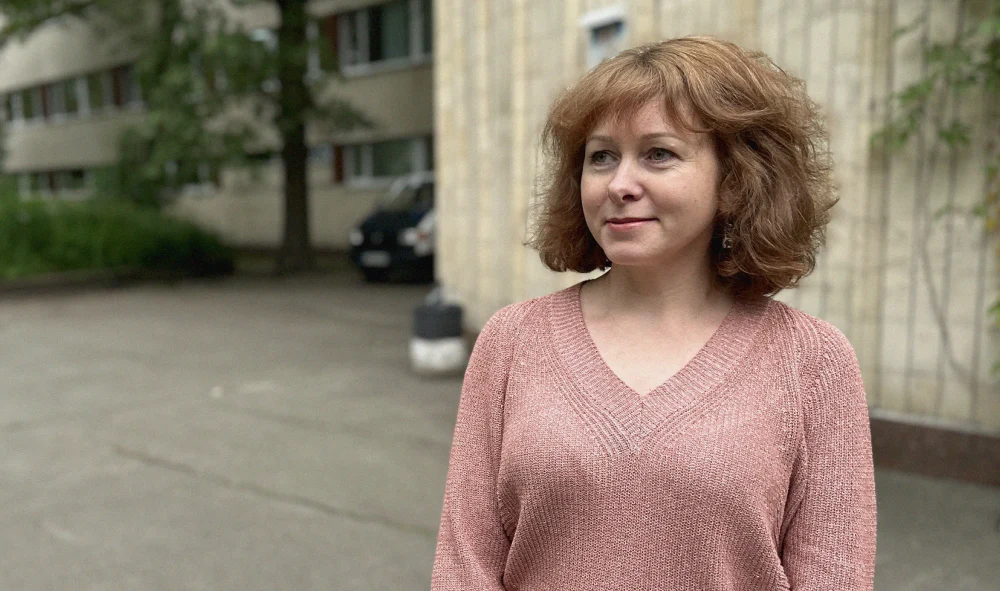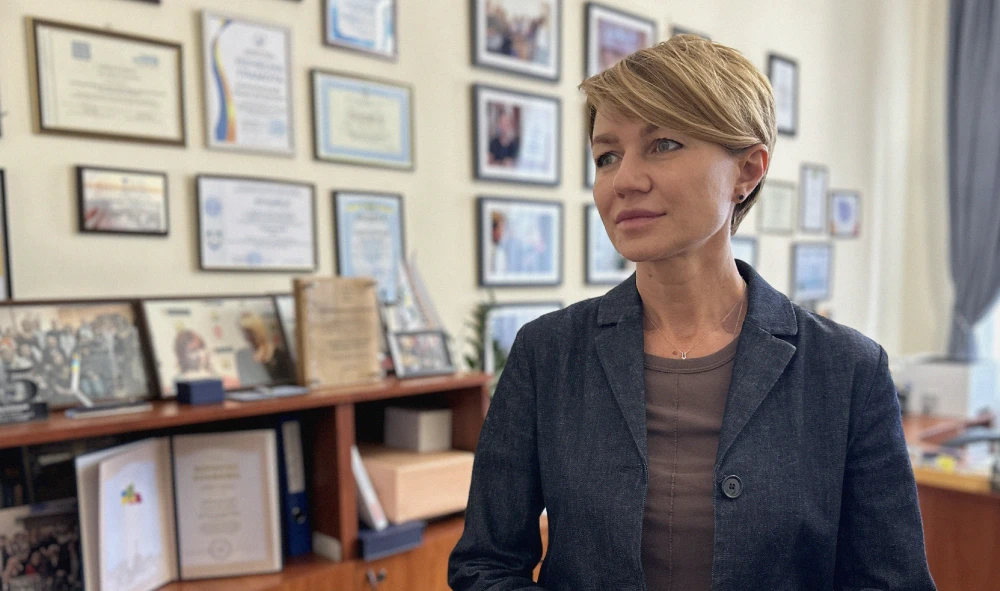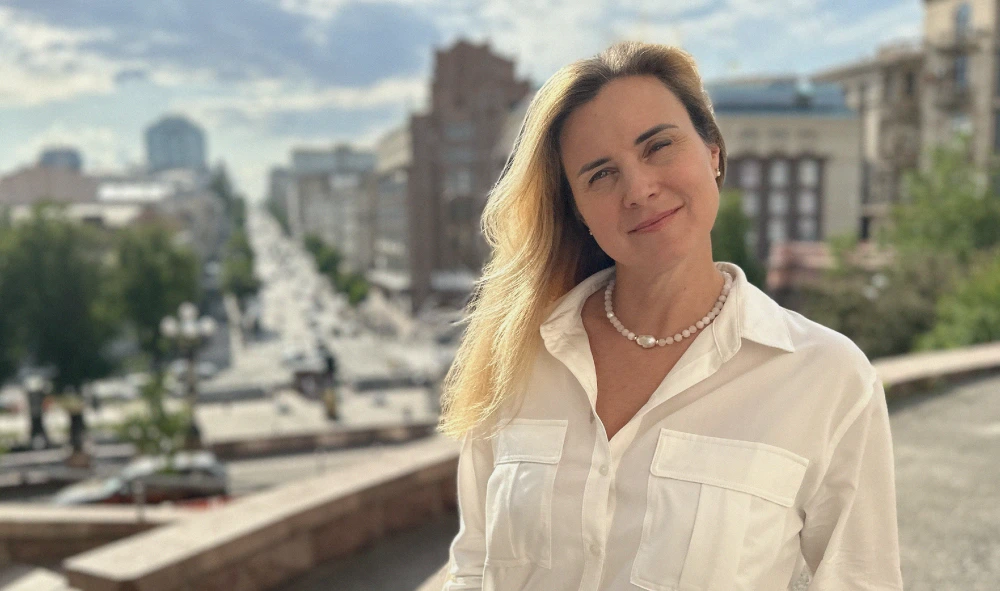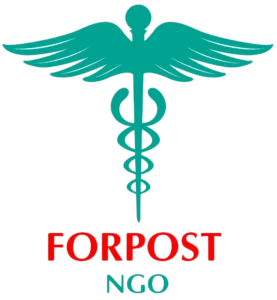They disappear in Russian captivity and are tortured –
Meet the psychologists helping those who return
Salim Tayssir Melhem
September 18 2025
Ukrainian psychologists are working tirelessly to help those who have endured torture and the traumas of war. In this article, they share their experiences of the mental health crisis in war-torn Ukraine – and the hope that emerges when survivors begin to rebuild their lives.
Salim Tayssir Melhem
September 18 2025
Ukrainian psychologists are working tirelessly to help those who have endured torture and the traumas of war. In this article, they share their experiences of the mental health crisis in war-torn Ukraine – and the hope that emerges when survivors begin to rebuild their lives.
Ukraine. Natalia was arrested in her home in Donetsk by Russian soldiers. She was interrogated, humiliated, and beaten. For several weeks, her family did not know whether she was alive. A primary school teacher, she had never imagined she would be subjected to torture in Russian captivity. Today, she receives psychological support and is slowly trying to find her way back to life.
The help she needs to rebuild comes from a Mental Health Center, located in a forest about a 30-minute drive outside Kyiv.
The entrance is made of glass, and next to it stands a multi-storey white building housing up to 200 patients. Many of them are soldiers or civilian Ukrainians who have survived imprisonment and torture, or who have lost limbs since Russia’s full-scale invasion of Ukraine in 2022. Some of the men are dressed in their military uniforms. The quiet here stands in stark contrast to the noise and air raid sirens of the capital, Kyiv. The place is filled with the presence of the complex stories carried by those inside.
In the Mental Health Center, we meet 56-year-old Natalia. It has been nearly two years since she was arrested by Russian forces, who accused her of being a spy.
»They believed I was relaying information about troop movements. I still can’t understand why they targeted me«, she says.
She was taken away and held in captivity for several days. She was interrogated, shouted at, and beaten to make her confess.
»After the interrogations, they stripped me. They threatened to send me to a desolate area full of landmines. And later, when I tried to fall asleep, they would wake me— to humiliate me«, Natalia says.
Natalia is one of thousands of Ukrainians who have been subjected to torture, other inhumane treatment, and detention by Russian forces. According to figures from Ukraine’s Human Rights Commissioner, more than 16,000 Ukrainian civilians have been captured and taken to Russia since the start of the invasion. And according to the United Nations Human Rights Monitoring Mission in Ukraine, 95% of Ukrainian prisoners of war and 75% of civilian detainees reported having been subjected to torture or ill-treatment while in Russian captivity.
Comprehensive Support and Assistance
The health staff in the Center encounter many like Natalia—individuals returning from prisons and detention centers in Russian-occupied areas, with psychological scars such as anxiety, depression, and PTSD.
One of the psychologists who treats traumatised Ukrainians is Tetiana Maletska, from DIGNITY’s Ukrainian partner organisation, Blue Bird. Since 2023, she has worked as the psychologist in their rehabilitation unit.

»The programs here are intense because patients stay at the hospital for three to four weeks and can receive both individual and group therapy. I see significant improvements in many of them, not least because we are located in the middle of a forest, which provides calm. But also, because our approach is holistic, offering several different forms of treatment simultaneously«, says Tetiana Maletska.
It’s not just about treatment. The organization Blue Bird also helps collect and document cases of war crimes through their legal advisors. She explains that knowing legal action may one day be taken against their perpetrators is an essential part of the victims’ rehabilitation.
Several international organizations have published reports on the escalating violence against civilians in Ukraine. Since February 2022, the UN Office of the High Commissioner for Human Rights (OHCHR) has documented that numerous Ukrainian civilians have died because of torture, lack of medical care, or inhumane conditions in both official and unofficial prisons and detention centres in Russian-occupied areas and in Russia itself.
As more soldiers and civilians return from the frontlines or are released in prisoner exchanges, the need for specialized support for those coming back with physical and psychological injuries is growing.
»We will need far more psychologists and other healthcare professionals in the future. Many will return with trauma from war and detention. If we are to rebuild Ukraine, we must also heal its people«, says Tetiana Maletska.
Yet Tetiana Maletska insists on hope.
»I have not lost faith in humanity, even though I meet patients with trauma from torture and war. On the contrary, they give me hope. I am inspired when I see someone who has survived all of this and still fights on for themselves and their family. Some people take up painting, others learn foreign languages, try to start their own business, or pursue a new profession. Stories like these show me the strength that exists in survivors of torture. We must not lose hope. We need to support people and tell the world about the crimes that are happening«, says Tetiana Maletska.
Blue Bird
Since 2022, DIGNITY has partnered with Blue Bird to support conflict-affected populations in Ukraine. The collaboration focuses on providing mental health support, increasing awareness among national authorities and NGOs about the needs of former captives, their families, and families of missing persons.
More people need help
According to a report from the World Health Organization (WHO) last year, it is estimated that around 9.6 million people in Ukraine are either living with, or at risk of developing, mental health disorders as a result of the war.
The figures from WHO align with the reality that Director Halyna Skipalska encounters in her work at the Ukrainian Foundation for Public Health, with which DIGNITY collaborates in Ukraine. They work on health issues for vulnerable groups and have expertise in reproductive, maternal, neonatal, child and adolescent health, HIV prevention, mental health, and support for survivors of violence and torture.
Halyna Skipalska explains that the need for mental health support is massive—and she expects that more and more people will struggle with psychological consequences as the war continues.

»Many people think they’re okay—that they just must hang on. But it’s only when the trauma takes hold and the pain becomes unbearable that they seek help. Often, it’s only when they are truly struggling that they start coming to us«, says Halyna Skipalska.
Since 2022, the Ukrainian Foundation for Public Health has reached around one million Ukrainians through a range of public health and psychosocial support initiatives. The organization has intensified its work during the war, offering psychological counseling, trauma treatment, and legal assistance to Ukrainians who have been subjected to gender-based violence and war crimes. In addition, they work on rehabilitation and support for internally displaced people.
»Over the past year, the situation has become even worse. The people we are seeing now are far more severely affected than before. Their traumas run deeper, and we are also seeing more serious mental health issues among the general population«.
Halyna Skipalska has worked with psychosocial health in Ukraine for years, but she does not hesitate to emphasize that the past year has been one of the toughest so far. She is seeing more people experiencing mental breakdowns and individuals who have endured brutality that she previously only heard about occasionally.
»Recently we supported a woman who managed to escape from an active combat zone after Russian soldiers had gang-raped her. We provided her with psychological support, a safe place to live, and the care she needed to be able to breathe again. Women like her show just how brutally this war impacts ordinary people«.
International Charitable Foundation Ukrainian Foundation for Public Health (UFPH)
DIGNITY works with UFPH to offer holistic support to survivors of war crimes in the Mykolaiv region, with a special focus on survivors of conflict-related sexual violence and torture. The partnership also supports the development of a referral network in the Mykolaiv region and provides self-care sessions for DIGNITY’s partners engaged in accountability work.
Trauma survivors
But both Blue Bird and the Ukrainian Foundation for Public Health face significant challenges. Halyna Skipalska points to burnout among the psychologists and care providers who are tasked with helping trauma survivors in Ukraine.
»The people providing help are themselves living through a war. Many are exhausted, afraid, or coping with personal losses, and that affects how well we can support others. It takes a toll on everyone«, she says.
At the Ukrainian Foundation for Public Health, they use programs such as WHO’s Self-Help Plus, which offers simple exercises designed to help people manage stress and complex thoughts. »This war will leave its mark on generations of Ukrainians. But I haven’t lost hope. I believe Ukraine will be free, independent, and part of Europe. That’s what keeps us going and unites us. It also gives me hope to see our skilled team, who not only help Ukrainians but also share our experience with other countries to strengthen their resilience. When peace finally comes, we will truly see the consequences of this war. Right now, we are only seeing the tip of the iceberg«, says Halyna Skipalska.
Another organization supported by DIGNITY is Forpost. Here, psychologist Olesia Olkhovyk also recognizes how the pressure on healthcare professionals is increasing.

»I’ve been seeing more and more patients with depression over the past year. The Ukrainian population is going through a challenging time, but there are also positive things to hold on to. People have become more aware of the importance of mental health, and I see many starting to focus on what truly matters in life«, says Olesia Olkhovyk.
Forpost
In collaboration with Forpost, DIGNITY delivers therapeutic and crisis mental health support to people affected by conflict. The partnership also strengthens the capacity of public authorities and NGOs through training on trauma-informed care and referral practices.
A garden with flowers
Although the war has taken away the homes and security of many Ukrainians, some still find new ways to carry on with everyday life.
»A patient lost her home at the beginning of the war. At the same time, she was hospitalized with long-term effects from COVID-19 and could neither walk nor concentrate. When she called us, we asked what was still important to her. She said: baking bread and tending a garden with flowers. Her house and the entire village were destroyed, yet she found hope in the small things she could still do. It’s about focusing on what we have—not just what we’ve lost«, explains Olesia Olkhovyk.
Many Ukrainians live in constant anxiety, repeatedly woken by air raid sirens and struggling to sleep. Yet they try to hold on to their routines.
»You don’t have a choice. Even when you are woken multiple times a night by air raid sirens and are exhausted, your work still goes on—there is only one option, and that is to survive. When I see small progress in my patients—when I know that they can grow, even if they cannot feel it—it gives me hope despite everything«.
Back at the Mental Health Center in the forest near Kyiv, Natalia sits, grateful that she received the support she needed to recover.
»When I got out of prison, I couldn’t sleep at all, and I felt like I was going to faint. Here at the hospital, I have received medication, massages, physiotherapy, and sessions with psychologists. It has helped me. I have also spent time in nature and enjoyed seeing the animals. The only thing that makes me happy is that I am here and that I survived«.
DIGNITY's work is supported by the Danish Ministry of Foreign Affairs.


DIGNITY's work is supported by the Danish Ministry of Foreign Affairs.




DIGNITY –
Danish Institute Against Torture
Bryggervangen 55
2100 Copenhagen Ø
Phone: +45 33 76 06 00
[email protected]
CVR: 69735118
EAN: 5790000278114
Konto: 4183 4310821209
